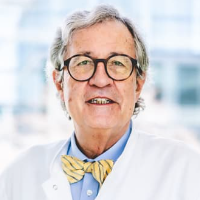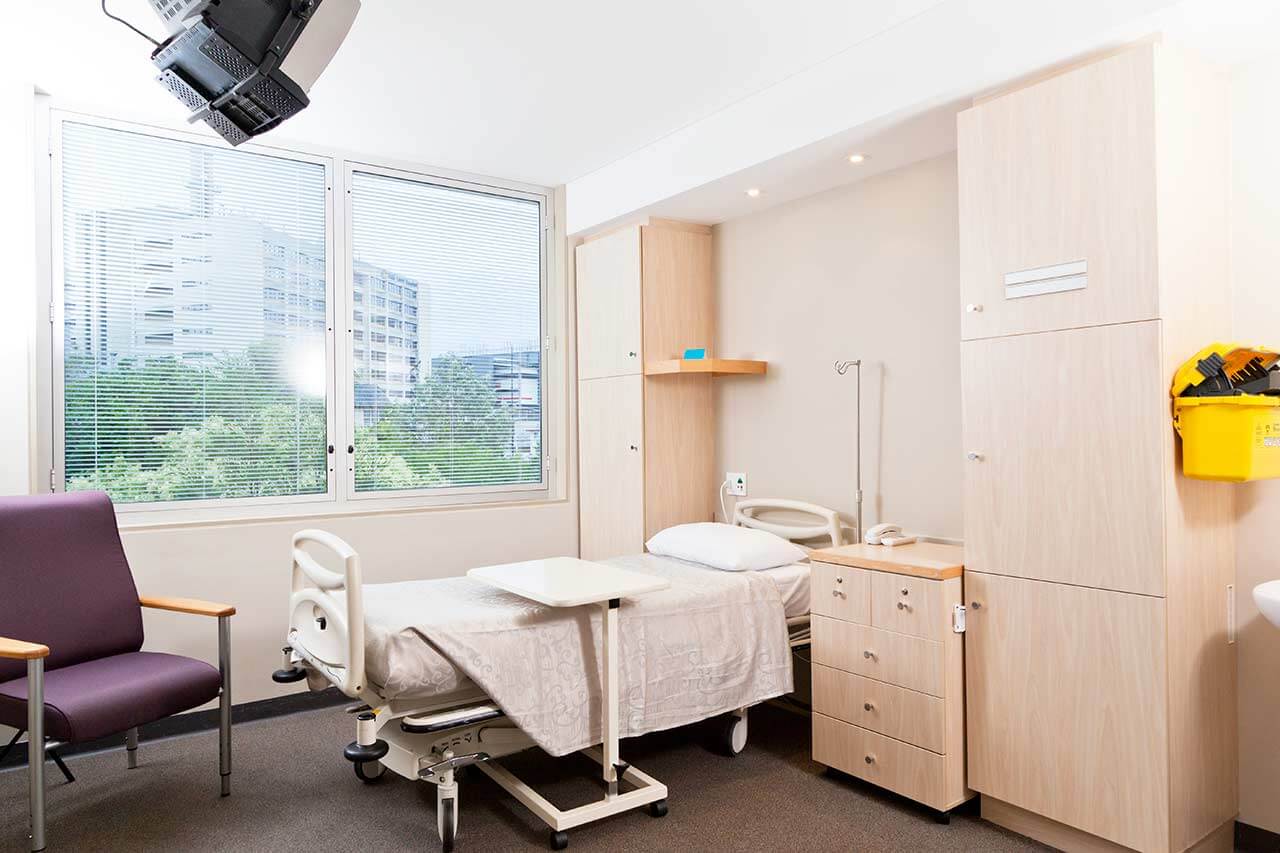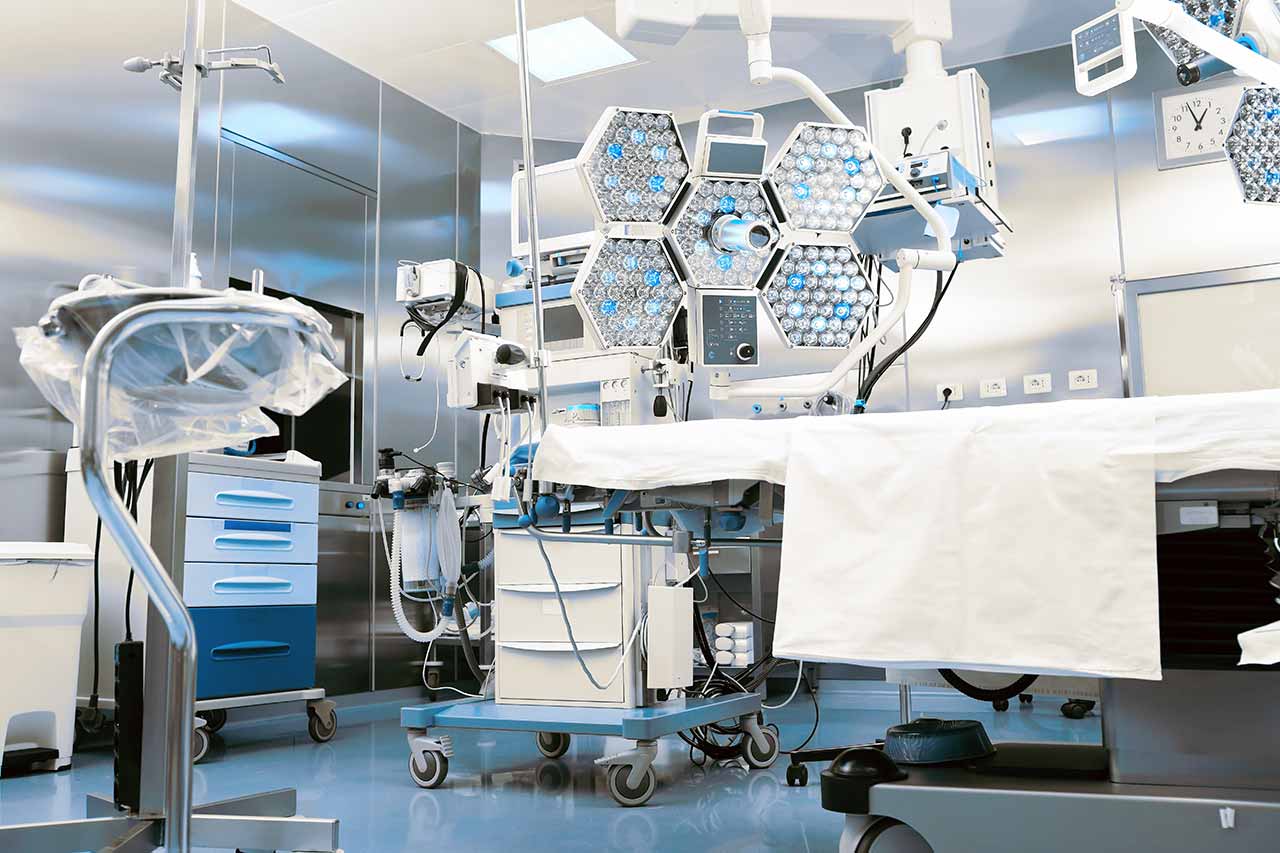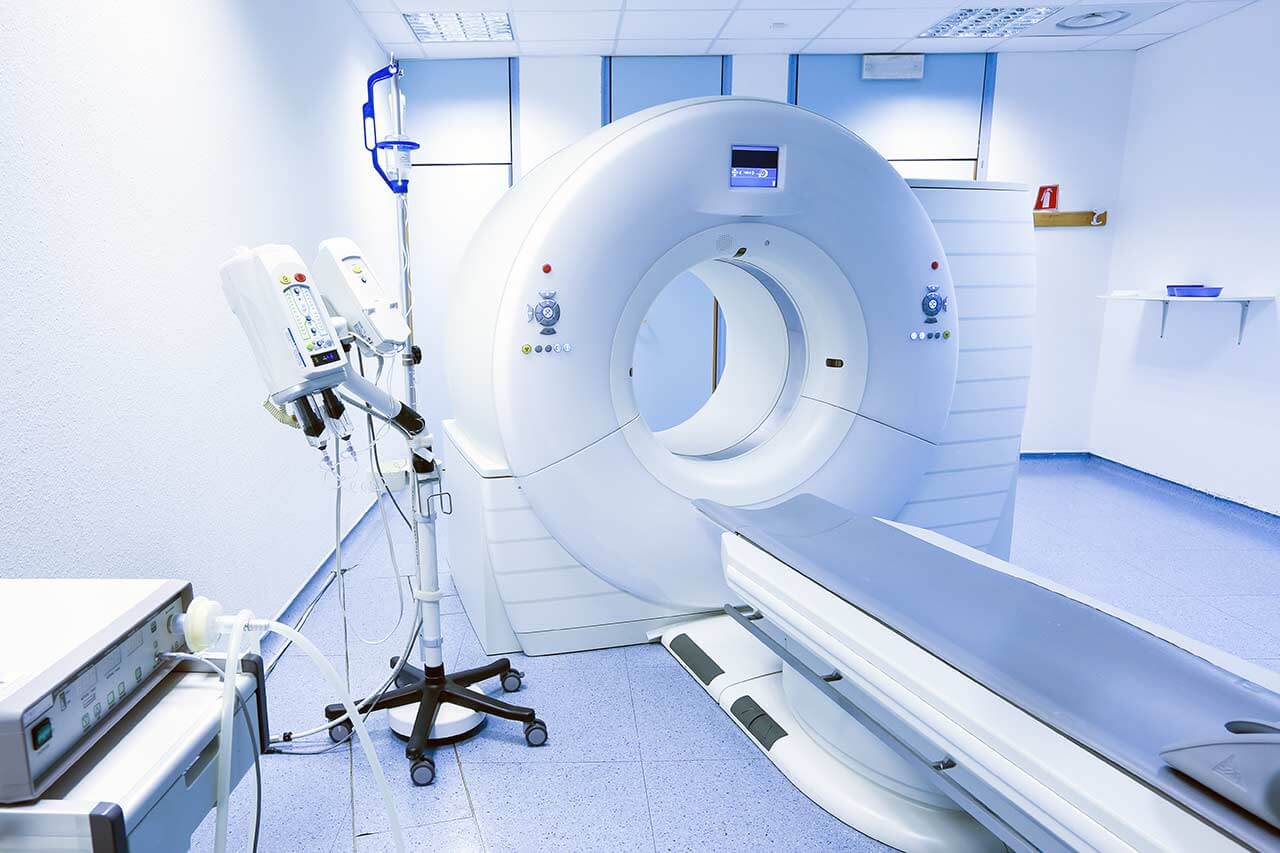
About the Department of Nuclear Medicine at Beta Clinic Bonn
The Department of Nuclear Medicine at the Beta Clinic Bonn offers modern diagnostics and treatment with radioisotopes. During the procedure, a radiopharmaceutical is injected intravenously into the patient, which accumulates in the pathological focus, due to which a doctor can obtain the necessary diagnostic data or achieve the desired therapeutic result. The department's medical team cooperates closely with the specialists from the Department of Nuclear Medicine at the University Hospital Bonn, so patients receive top-class medical care that meets the standards of university medicine. A separate specialization of the department's doctors is radioiodine therapy in patients with benign and malignant thyroid diseases. The scope of services of the medical facility also includes radioisotope treatment for liver tumors, liver metastases, neuroendocrine tumors, and bone metastases. The treatment regimen is developed for each patient on an individual basis, which contributes to the high effectiveness of therapy. The department strictly observes the norms of radiation safety and the requirements of professional societies. The department is headed by Prof. Dr. med. Hans-Jürgen Biersack.
Patients with thyroid diseases are the focus of the department's doctors' attention. The full range of thyroid examinations is carried out here to detect the slightest pathological changes in the organ. The diagnosis begins with a clinical examination of the patient and palpation of the thyroid gland. Hormone testing is then prescribed, including tests for free triiodothyronine (FT3), free thyroxine (FT4), and thyroid stimulating hormone (TSH). The next step includes a classic thyroid ultrasound scan and duplex sonography. With appropriate clinical indications, thyroid scintigraphy may be conducted. This allows doctors to assess the intensity of metabolism, obtain data on the shape and size of the organ, and also determine the function of the thyroid gland (decreased or increased function). With all the diagnostic results available, the attending physician can make an accurate diagnosis and develop an optimal treatment regimen for the patient.
Most often, the department's specialists carry out radioiodine therapy for goiter, hyperthyroidism (overactive thyroid), and thyroid cancer. The therapeutic procedure involves the oral administration of an individually calculated dose of radioactive iodine-131 in the form of capsules or liquid. The dose of the drug depends on the stage of the disease, the weight of the patient, and other factors. The targeted effect of radioactive iodine is ensured by the fact that it is absorbed only by hormonally active cells of the thyroid gland. The department's team of doctors regularly performs radioiodine therapy and has vast experience in this field. The experience of the department's doctors allows them to determine the optimal dosage of the radiopharmaceutical agent for each patient, which plays a decisive role in the treatment's success. Once in the thyroid cells, radioactive iodine emits beta radiation that damages the thyroid cells. Radioiodine therapy is carried out on an inpatient basis. As a rule, the duration of a hospital stay is 2-6 days. The final treatment outcome can be assessed after a few months.
The department also specializes in the radioisotope treatment of neuroendocrine tumors. Such tumors are quite rare, so not all medical facilities have the necessary professional skills and resources to help such patients. Neuroendocrine tumors may develop in various organs, including the lungs, stomach, pancreas, and liver. Despite the fact that neuroendocrine tumors are relatively rare, they are quite dangerous because they do not cause any symptoms for a long time. In most cases, the treatment is based on surgery, but sometimes the localization of the neoplasm does not allow it to be performed. In such cases, the department's specialists offer an effective method of radioisotope treatment for neuroendocrine tumors, namely peptide receptor radionuclide therapy (PRRT). The therapeutic procedure can relieve symptoms, slow down or stop the growth of the neoplasm, and increase the patient's life expectancy. The essence of PRRT is as follows: the analogue of somatostatin is labeled with the radionuclide Lutetium-177. Somatostatin receptors are present on the surface of a neuroendocrine tumor. Therefore, after the administration of a radiopharmaceutical, it independently finds cancer cells and destroys them with Lutetium-177 radiation. Lutetium-177 radiation does not extend far, which makes it possible to exclude damage to healthy adjacent tissues. Peptide receptor radionuclide therapy takes about 15-20 minutes. Before the procedure, the patient is given an injection of an amino acid solution that protects the kidneys from damage. Radiopeptides are also administered intravenously. In addition, to reduce the load on the kidneys, the patient needs to drink plenty of water before and after therapy. The standard course of treatment consists of 4 sessions with an interval of 8 weeks.
The department's therapeutic options include:
- Radioiodine therapy for goiter, hyperthyroidism (overactive thyroid), and thyroid cancer
- Peptide receptor radionuclide therapy (PRRT) for neuroendocrine tumors
- Radioembolization for liver tumors and liver metastases
- Radionuclide treatment for bone metastases
- Other treatment methods
Curriculum vitae
Higher Education and Professional Career
- 1966 - 1972 Medical studies in Bonn.
- 1974 Thesis defense.
- 1974 - 1978 Residency, Department of Nuclear Medicine, University Hospital Bonn.
- 1978 Venia Legendi in Nuclear Medicine, University of Bonn.
- 1978 Deputy Head of the Department of Nuclear Medicine, University Hospital Bonn.
- 1982 Professorship for Nuclear Medicine, University Hospital Bonn.
- 1986 Professor and Head of the Department of Nuclear Medicine, University Hospital Bonn.
- 1988 - 1990 Dean, Faculty of Medicine, University of Bonn.
- 1990 - 1992 Vice Dean, Faculty of Medicine, University of Bonn.
- 1990 - 1992 Senator of the Senate of the University of Bonn.
- 1992 - 1994 President of the German Society of Nuclear Medicine.
- 1994 - 1998 President of the World Federation of Nuclear Medicine and Biology.
- 1997 - 2000 Vice Rector (Research), University of Bonn.
- 2012 Congress President of the German Society of Nuclear Medicine.
Awards and Honors
- 1979 Alfred Gütgemann Award.
- Order of Merit, Federal Republic of Germany.
- Sign of Honor, Red Cross.
- 2000 Werner Heisenberg Medaille.
Publications
- Author of over 600 articles, 400 of which are posted on PubMed®, and author of 650 abstracts, 310 book chapters, and 35 books.
Photo of the doctor: (c) Beta Klinik Service-, Verwaltungs- und Forschungs- GmbH





